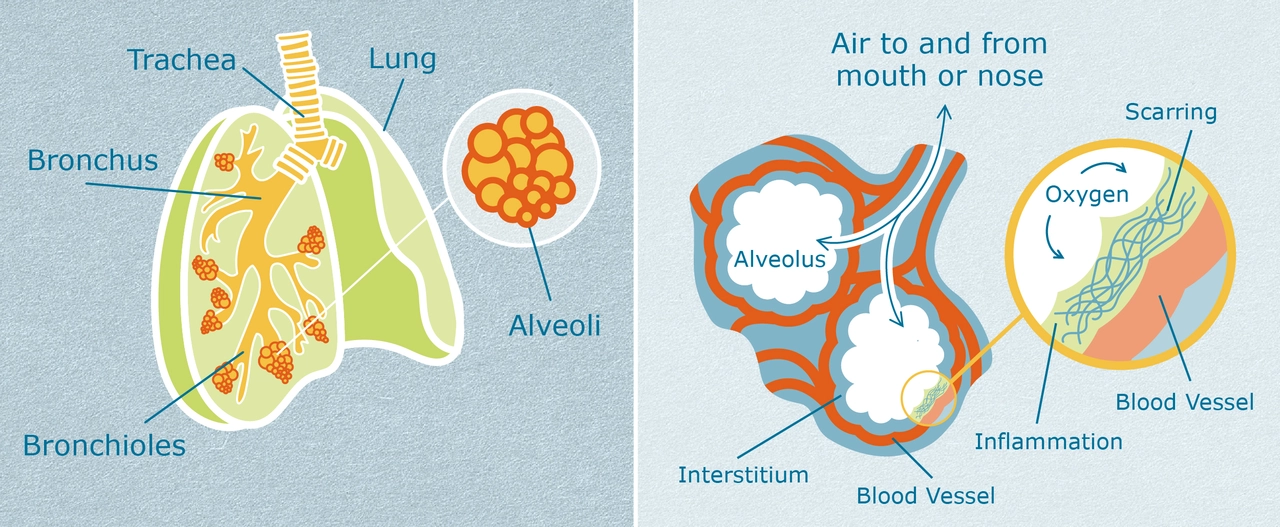Understanding Idiopathic Pulmonary Fibrosis
Before diving into the impact of idiopathic pulmonary fibrosis (IPF) on relationships and social life, it is essential to have a basic understanding of the disease. IPF is a chronic lung disease characterized by progressive scarring of the lung tissue, leading to difficulty breathing and decreased oxygen supply to the body. The cause of IPF is unknown, hence the term "idiopathic."
As the disease progresses, individuals with IPF may experience severe shortness of breath, persistent cough, fatigue, and other debilitating symptoms. These symptoms can significantly affect a person's daily life, including their relationships and social activities.
Challenges in Communication
One of the primary challenges that people with IPF face is difficulty in communication. As shortness of breath worsens, it may become harder to engage in conversations or express oneself clearly. This can be frustrating for the person with IPF and may lead to misunderstandings or misinterpretations in their relationships.
Moreover, the persistent cough often associated with IPF can also be disruptive during conversations, making it difficult for the person to maintain a steady flow of dialogue. It is crucial for both the person with IPF and their loved ones to be patient and understanding of these communication challenges.
Adjusting to a Slower Pace of Life
As the disease progresses, everyday tasks and activities may become increasingly challenging for those with IPF. It is common for people to experience a decline in their energy levels, leading to a slower pace of life. This change can be difficult for both the person with IPF and their loved ones to adapt to.
It is essential to recognize these limitations and adjust expectations accordingly. This might mean planning more low-key social activities or setting aside more time for rest during the day. By being flexible and accommodating, relationships can continue to thrive despite these challenges.
Emotional Impact on Relationships
IPF can take a significant emotional toll on both the person diagnosed and their loved ones. It is common for individuals with IPF to experience feelings of fear, anxiety, depression, and frustration as they come to terms with their diagnosis and navigate the challenges of living with the disease.
These emotions can put a strain on relationships, as loved ones may struggle to understand and support the person with IPF. Open, honest communication is key in navigating the emotional challenges that may arise and maintaining strong, supportive relationships.
Managing Social Isolation
As symptoms worsen, people with IPF may find it challenging to participate in social activities they once enjoyed. This can lead to feelings of isolation and loneliness, further exacerbating the emotional challenges associated with the disease.
It is crucial for individuals with IPF and their loved ones to be proactive in combating social isolation. This might involve seeking out support groups, engaging in online communities, or finding new hobbies and interests that can be enjoyed despite physical limitations.
Managing the Impact on Intimate Relationships
IPF can also have a significant impact on intimate relationships. The physical and emotional challenges associated with the disease can put a strain on sexual intimacy and the overall connection between partners.
It is essential for couples to maintain open communication about their needs and concerns surrounding intimacy. Working together to find alternative ways to express love and affection can help maintain a strong, healthy relationship despite the challenges presented by IPF.
Creating a Supportive Environment
Perhaps the most critical aspect of managing the impact of IPF on relationships and social life is fostering a supportive environment. This involves understanding the challenges and limitations associated with the disease and working together to create a network of support for the person with IPF.
By maintaining open communication, adjusting expectations, and seeking out additional resources, it is possible to minimize the negative impact of IPF on relationships and social life, allowing individuals and their loved ones to continue to enjoy meaningful connections and experiences.






Cynthia Petersen
April 30, 2023 at 04:05
Oh sure, because nothing says “romantic dinner” like a wheezing cough interrupting the conversation-just what every couple dreams of.